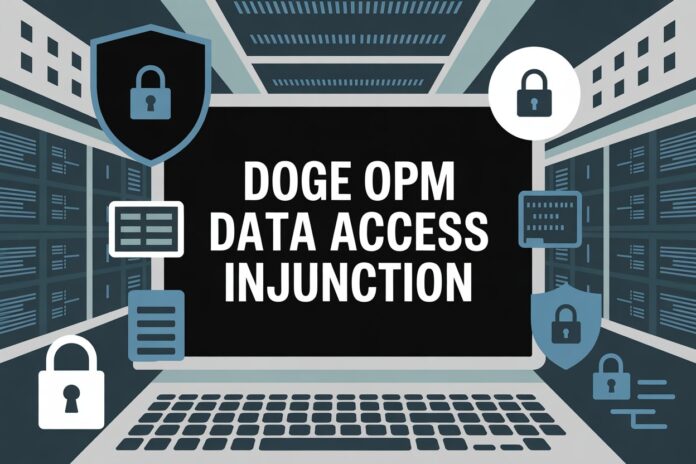In recent years, cybersecurity incidents involving government agencies have raised serious concerns about data privacy and protection. One notable development is the Doge OPM Data Access Injunction, a legal action that has significant implications for how sensitive data is accessed and safeguarded across federal agencies.
This article aims to provide a clear and engaging overview of the Doge OPM Data Access Injunction, explaining what it is, why it matters, and how it affects both government operations and public privacy.
What Is the Doge OPM Data Access Injunction?
Definition and Background
The Doge OPM Data Access Injunction is a court-issued legal order aimed at restricting unauthorized access to the Office of Personnel Management (OPM) systems. The injunction was issued in response to a series of cybersecurity breaches that compromised millions of federal employees’ personal information.
Key points include:
- It prevents certain parties from accessing or extracting data from OPM systems without proper authorization.
- It is part of ongoing legal and security measures to protect sensitive government data.
- The injunction is targeted at specific entities involved in or linked to the breach, including cybercriminal groups and unauthorized actors.
Why Was the Injunction Issued?
The injunction was necessary due to:
- A significant data breach at OPM in 2015, which exposed personal information of over 21 million federal employees and contractors.
- Concerns over ongoing attempts by malicious actors to access or misuse sensitive government data.
- Efforts to prevent further unauthorized data access and to strengthen cybersecurity defenses.
The Significance of the Data Access Injunction
Protecting Sensitive Information
The primary goal of the injunction is to safeguard the personal data of federal employees and maintain national security. Sensitive information like Social Security numbers, security clearance details, and employment records are at risk if accessed improperly.
Legal and Security Implications
The injunction:
- Sets legal boundaries for data access, making unauthorized access a prosecutable offense.
- Encourages government agencies and contractors to adopt stricter cybersecurity protocols.
- Acts as a deterrent against cybercriminals targeting federal systems.
How the Doge OPM Data Access Injunction Affects Stakeholders
For Government Agencies
- Enhanced Security Measures: Agencies must comply with the injunction’s directives, including stricter access controls and monitoring.
- Legal Responsibilities: They face legal consequences if they fail to prevent unauthorized data access.
- Operational Changes: Implementation of new cybersecurity protocols and employee training.
For Contractors and External Parties
- Restricted Access: Only authorized personnel with proper clearance can access sensitive data.
- Compliance Requirements: They must adhere to the injunction’s terms and federal cybersecurity standards.
- Risk Management: Increased focus on cybersecurity to avoid legal repercussions.
For the General Public
- Data Privacy: Strengthened protections help prevent identity theft and fraud.
- Transparency: The injunction demonstrates the government’s commitment to safeguarding citizen data.
- Ongoing Risks: Despite legal protections, vigilance is necessary as cyber threats evolve.
Key Components of the Injunction
Access Restrictions
The injunction enforces strict controls over data access, requiring:
- Authentication and authorization protocols
- Regular audits and monitoring
- Immediate reporting of suspicious activities
Enforcement and Penalties
Violating the injunction can lead to:
- Civil and criminal penalties
- Employment termination for government staff
- Increased legal action against cybercriminals
Future Outlook and Ongoing Developments
The Doge OPM Data Access Injunction is part of a broader effort to strengthen federal cybersecurity infrastructure. Future initiatives include:
- Deploying advanced threat detection systems
- Improving data encryption and secure access technologies
- Increasing collaboration between government agencies and cybersecurity firms
Stay informed: For updates on federal cybersecurity policies, visit our Cybersecurity News Section.
Conclusion
The Doge OPM Data Access Injunction marks a significant step in safeguarding sensitive government data against cyber threats. It emphasizes the importance of strict legal measures and proactive cybersecurity strategies in protecting national security and individual privacy.
By understanding its purpose and implications, government officials, contractors, and citizens can better appreciate the ongoing efforts to defend against cyberattacks and maintain trust in federal data security.

